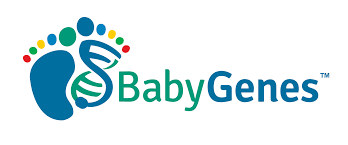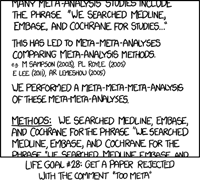A few months ago in Golden Helix’s 2nd Annual Abstract Challenge, Dr. Raluca Mateescu tied for third place with her entry on the palatability of beef. We mentioned in our previous post highlighting all of the challenge winners that Dr. Mateescu would be presenting her work for the Golden Helix community and the time has come! Next week for our… Read more »
This last week I had the pleasure of attending the fourth annual Clinical Genome Conference (TCGC) in Japantown, San Francisco and kicking off the conference by teaching a short course on Personal Genomics Variant Analysis and Interpretation. Some highlights of the conference from my perspective: Talking about clinical genomics is no longer a wonder-fest of individual case studies, but a… Read more »
It is already almost halfway through 2015, and June has been especially busy as far as customer publication goes. We wanted to pass on the articles to you and congratulate our customers on their success! Elena Gusareva and Kristel Van Steen of the University of Liege and colleagues recently published A cautionary note on the impact of protocol changes for genome-wide… Read more »
Golden Helix recently announced the addition of VSPipeline to our VarSeq software. VSPipeline is a command-line interface that will allow high throughput environments the ability to tap the full power of VarSeq’s algorithms and flexible project template system from any command line context, including existing bioinformatics pipeline. VSPipeline supports the need to efficiently generate VarSeq projects from workflow-encoding project templates…. Read more »
Just a few weeks ago we announced our partnership with MedGenome. The news was covered by a number of outlets including: Financial Express Pharmabiz Let me expIain the importance and impact of this announcement. Since Varseq was released, we have received strong interest from testing labs that are leveraging our product to implement cancer diagnostic pipelines. Please feel free to take… Read more »
The support team at Golden Helix is always on-hand to help with your SVS and VarSeq needs. We get some questions more often than others, and this blog will answer some of the most common questions we’ve been seeing lately regarding VarSeq. A common question we receive is if data can be filtered from a locally kept set of variants… Read more »
In recent months we have been updating our public annotation library to include the most recent versions of existing sources as well as include new sources. Each of these annotation sources are compatible with our three major products (SVS, GenomeBrowse and VarSeq) and can be used for visualization, annotation and filtering. NHLBI ESP6500SI-V2-SSA137 Exomes Variant Frequencies 0.0.30, GHI Annotations are… Read more »
Yes, I said it. “Them be fighting words” you may say. Well, it’s worth putting a stake in the ground when you have worked hard to have a claim worth staking. We have explored the landscape, surveyed the ravines and dangerous cliffs, laboriously removed the boulders and even dynamited a few tree stumps. Stake planted. Ok, so now I’m going… Read more »
There are many approaches that one might use to define a variant as potentially deleterious. For example, we often see analysis workflows based on rare, non-synonymous variants, perhaps incorporating additional annotation sources that capture known or predicted consequences of coding variants. Annotations for coding regions of the genome are relatively abundant and familiar to genome scientists. We are comfortable in… Read more »
This year the MAGES symposium has a new name, the Symposium on Advances in Genomics, Epidemiology and Statistics or SAGES! The NIH has also been added to the sponsor list and we’re excited to have the support for this informative symposium! Additionally, we were treated to the addition of a new poster session to accompany the fantastic speakers. The trend… Read more »
Today we wanted to share a recent client case study to demonstrate how VarSeq has been implemented in a CLIA certified clinical laboratory. Please feel free to contact us if you have questions or if you would like to discuss VarSeq further at [email protected]. It is standard practice for newborns to be screened for genetic diseases before leaving the hospital to… Read more »
Today at Golden Helix, we are proud to announce our collaboration with MedGenome through an integration of OncoMD into our VarSeq software. Now VarSeq’s streamlined process of annotating and filtering variants will offer an added dimension. OncoMD is a comprehensive knowledge base of cancer-specific genetic alterations, and by incorporating it into VarSeq, users can access to 2 million plus annotated… Read more »
There’s a strong desire in the genetics community for a set of canonical transcripts. It’s a completely understandable and reasonable thing to want since it would simplify many aspects of analysis and especially the downstream communicating and reporting of variants. Unfortunately, biology isn’t so tidy as to provide a clear answer for which transcript is the important one. Consequently, there… Read more »
Regulatory Issues Regulatory bodies such as the Federal Drug Administration (FDA) already have a full plate. In the US, FDA-regulated products account for 20 percent of each dollar spent by American consumers each year. More specifically, the work of the regulatory authorities include the following: Carefully considering benefits and risks when evaluating medical products Staying on top of rapidly advancing scientific innovations… Read more »
Since its early release in early 2012, the population frequencies from the GO Exome Sequencing Project (ESP) – from the National Heart, Lung and Blood Institute (NHLBI) have been a staple of the genomic community. With the recent release of ExAC exome variant frequencies, the ESP has been surpassed as the largest cohort of publicly available variant frequencies (by nearly… Read more »
The Educational Challenge Precision medicine will fundamentally change how health care is practiced. Of course, we have a long way to go. For most practitioners today, their knowledge of the human genome was established many years ago. However, new therapies and diagnostic methods are pouring in on a daily basis. So, how do we make sure that the current and… Read more »
Several of our customers have published recently, using our SVS and VarSeq software, and we love sharing their work with you. Congrats to all! Sebastian Mucha and Joanne Conington of Scotland’s Rural College along with colleagues collaboratively published Genome-wide association study of footrot in Texel sheep in Genetics Selection Evolution which used GWAS to investigate links between ovine footrot scores and molecular polymorphisms… Read more »
Bioinformatics Pipelines and Systems Infrastructure The genetics industry is undergoing a fundamental shift from a clinical science focus to a bioinformatics focus. Genetic services require a greater level of data analytics sophistication than is required for other laboratory testing. Currently, data generated by new tests overwhelms current information technology systems and human interpretation capabilities. This is one of the reasons… Read more »
Meta-analysis is an important tool to have in the bioinformatics toolbox. The numbers alone speak for themselves. It is the fourth most requested feature for SVS, and a simple google scholar search for 2014 and 2015 find 17,300 results for genetics + meta-analysis. There are several meta-analysis utilities out there that will take results from studies and perform the meta-analysis…. Read more »
Adoption by Patients and Health Care Professionals Precision Medicine leverages the most innovative technology advances in the field of genetics. The concept is “en vouge”! We know that the science will give us increasingly better treatment options. I have covered this in my previous blog post. But does it really matter? Precision medicine only will become a reality if both… Read more »










